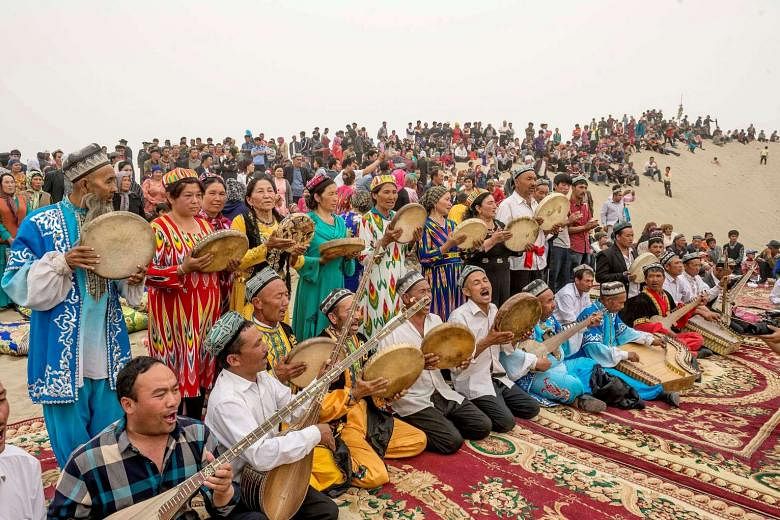BEIJING (REUTERS) - Religious discrimination does not exist in China's unruly western Xinjiang region and there will be no interference in Ramadan activities, the government said on Thursday (June 2) ahead of this year's holy month, despite criticism from rights groups.
The fasting month of Ramadan, which begins next week, is a sensitive time in Xinjiang, where deadly attacks in recent years blamed by Beijing on Islamist militants have left hundreds dead.
Authorities in Xinjiang in the past have stepped up controls on the practice of the Islamic faith followed by the Uighur ethnic minority there during Ramadan. There has been criticism of people having been banned from worship and that restaurants had been forced to stay open to discourage fasting.
Muslims worldwide observe Ramadan, during which many abstain from eating and drinking during daylight hours.
"During the holy Islamic month of Ramadan, whether to close or open halal restaurants is completely determined by the owners themselves without interference," a Chinese government report on religious freedom in Xinjiang said.
"No citizen suffers discrimination or unfair treatment for believing in, or not believing in, any religion," the report said, adding that "citizens' religious feelings and needs are fully respected".
Rights groups and exiles say one of the major problems in Xinjiang is government controls on Uighur culture and Islam, which stoke ethnic tension, such as regulations banning overt signs of religious observance, like veils or beards.
Dilxat Raxit, a spokesman for the World Uyghur Congress, the main Uighur exile group, said in an email that the United States had a responsibility to pressure China to respect Uighurs'religious beliefs during bilateral talks in Beijing starting on Monday.
China's "lies could not cover up the truth" about its openly restrictive and prohibitive religious policies, he said.
Shoket Imin, a member of the ruling Communist Party's standing committee in Xinjiang, told reporters at a briefing on the report that children below the age of 18 must not go to mosques, a policy critics say is an attempt to weaken religious sentiment.
Religion cannot be used to obstruct compulsory education and state education activities, and "students must not participate in religious activities", he said, citing laws.
China says it protects freedom of religion, but it allows only state-recognised religious institutions to operate.
There are around 20 million Muslims spread throughout the country, only a portion of whom are Uighur, a Turkic-language speaking group that has traditionally followed a moderate form of Islam.

